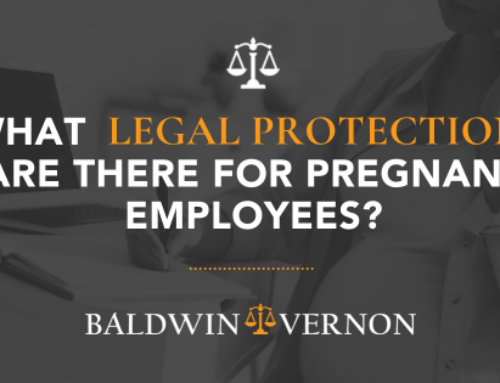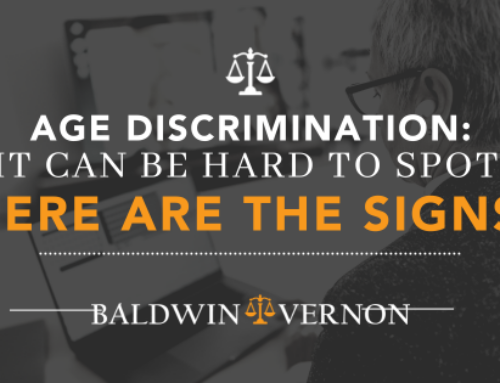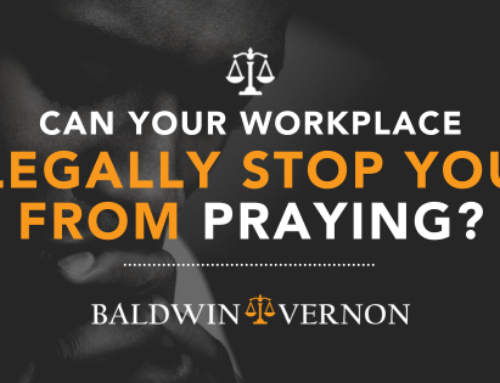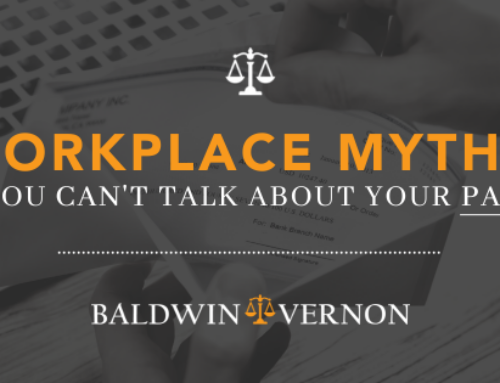The pandemic has brought about many shifts in our daily lives and it has affected people in different ways. While there is no doubt that Covid-19 has made a huge impact on the world, it has not changed the laws in place to protect workers at their jobs. Here are just some examples of how the law remains firm.
Discrimination can be virtual
While much of the workforce shifted their office to their homes at the beginning of the pandemic, many still remain working remotely. For those that are working out of the office, you are still protected from harassment or discrimination that takes place virtually. Inappropriate email chains, text messages, online chats, video calls, and phone calls can all be used in a discriminatory way, and the law protects you against those actions, just as it would if you were sitting with all of your co-workers back at the office.
Rights for new parents haven’t changed
Just because you are working from home, it doesn’t mean that you should be treated any differently as a pregnant woman or soon-to-be parent. There is no law in place that says you should receive less unpaid medical leave than is outlined under law or be expected to come back earlier due to the fact that you can just turn on your computer because you’re working from home. The same rights you had at the workplace should be applied to your remote situation as far as getting time to pump breast milk and taking leave to care for your newborn. When returning from leave, your original job or similar job with the same pay should be waiting for you.
Retaliation is still unlawful
Retaliation might be more common than you think. According to the U.S. Equal Employment Opportunity Commission (EEOC), retaliation was the most frequent charge filed with the agency in 2018, followed by sex, disability and race. It’s important to note that retaliation is not limited to obvious punishments such as firing. According to NPR, “sometimes people can be really creative about how they retaliate, because the goal is to not seem like you’re retaliating.” You have a right to stand up for yourself, to report what you see, and to participate in an EEOC investigation. You cannot be fired, demoted, excluded, or treated unfairly in retaliation.
You still don’t have a right to privacy
Let us explain. Many people think that because they have a work computer, work phone, work laptop, or work iPad, that it is theirs and what they do on it should be private. That is just not true, and that remains the same, even though you are bringing those items into your home due to your remote work situation. Your employer still has the right to see what you send and receive via your work email and can retain any information on your work devices to use it against you. Your employer can even see your personal emails if they were opened and sent on your work computer.
Employers can’t discriminate during the hiring process
The hiring process looks a little different right now with virtual interviews and remote training. Many companies are hiring remote workers who have never had a remote workforce in the history of their organization. What’s important to remember is that discrimination of a candidate during the hiring process or in a job posting is unlawful, no matter if the discrimination is based on race, sex, age, religion, or another aspect of a person’s appearance or personal background.
A hostile environment is still harassment
The EEOC states that one way harassment can go from a joke to illegal is when “the conduct is severe or pervasive enough to create a work environment that a reasonable person would consider intimidating, hostile, or abusive.” When we think of the word “environment,” it is common to imagine a physical space such as your office, so what happens when everyone is working from their own homes? When logging on in the morning or showing up to your Monday morning meeting becomes overwhelming and anxiety-ridden, it can be argued that that constitutes a hostile environment, depending on the facts of the case.
Pandemic or not, your rights are protected and the law remains in place to serve justice. If you have a question due to our unique Covid-19 circumstances or need assistance with a workplace discrimination or harassment case, call Baldwin & Vernon at (816) 842-1102 or email info@bvalaw.net to discuss your experience.







